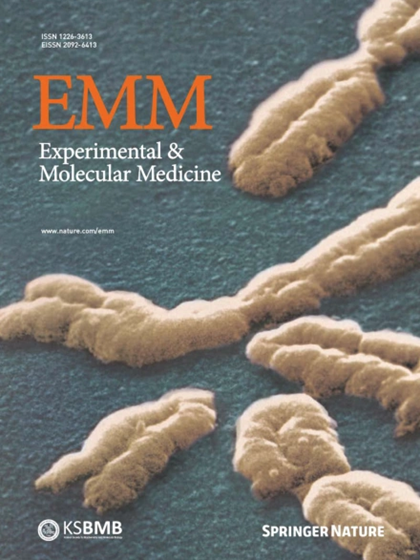Macrophages: a double-edged sword in female reproduction and disorders
IF 9.5
2区 医学
Q1 BIOCHEMISTRY & MOLECULAR BIOLOGY
引用次数: 0
Abstract
Reproduction consists of sequential inflammation-like events, primarily within the endometrium, from ovulation to embryo implantation, decidualization and delivery. During the reproductive cycle, the endometrium repeatedly undergoes cyclic periods of proliferation, differentiation, tissue breakdown and repair without scarring. Owing to their phagocytic activity, macrophages, key players in innate immunity, are thought to play crucial roles in the endometrium. Endometrial macrophages actively participate in various stages of reproductive tissue remodeling, particularly during decidualization and pregnancy establishment. Traditionally considered simple bystanders that clear debris to prevent autoimmune responses in tissue homeostasis, macrophages are now recognized as main actors with broad functional plasticity that allows them to fine tune the balance between pro- and anti-inflammatory responses during tissue inflammation, remodeling and repair. Homeostatic balance is determined by the sum of various mediators produced by two distinctly polarized macrophage subpopulations. The biased polarization of tissue-resident macrophages may contribute to the pathogenesis of various diseases, such as inflammation and cancer. Thus, understanding how macrophages contribute to endometrial homeostasis is crucial for deciphering the underlying mechanisms of various reproductive disorders. Nanomedicines using extracellular vesicles, nanoparticles and noncoding RNAs have recently been applied to modulate macrophage polarization and alleviate disease phenotypes. Despite these advances, the functions of endometrial macrophages under physiological and pathophysiological conditions remain poorly understood, which complicates the development of targeted therapies. Here we update the current understanding of the homeostatic function of macrophages and the putative contribution of endometrial macrophage dysfunction to reproductive disorders in women, along with innovative molecular therapeutics to resolve this issue. Macrophages are a type of white blood cell that plays a key role in our immune system by engulfing and digesting harmful substances. This Review explores the diverse roles of macrophages beyond their basic immune functions, particularly in female reproduction. Researchers found that these cells are crucial for inflammation regulation and tissue repair. Macrophages can change their behavior based on signals from their environment, which is known as polarization. They can become either M1 or M2 types, depending on the situation. In female reproduction, macrophages help with processes such as menstruation, embryo implantation and pregnancy maintenance. The study concludes that understanding macrophage functions can lead to new treatments for reproductive issues. Future research may focus on using macrophage-targeted therapies to improve reproductive health and treat related diseases. This summary was initially drafted using artificial intelligence, then revised and fact-checked by the author.

巨噬细胞:女性生殖失调的双刃剑。
生殖包括一系列炎症样事件,主要发生在子宫内膜内,从排卵到胚胎着床、脱卵和分娩。在生殖周期中,子宫内膜反复经历增殖、分化、组织破坏和修复的循环周期,而不会留下疤痕。巨噬细胞作为先天免疫的关键角色,由于其吞噬活性,被认为在子宫内膜中起着至关重要的作用。子宫内膜巨噬细胞积极参与生殖组织重塑的各个阶段,特别是在去个体化和妊娠建立期间。传统上,巨噬细胞被认为是清除碎片以防止组织稳态自身免疫反应的简单旁观者,现在,巨噬细胞被认为是具有广泛功能可塑性的主要参与者,使它们能够在组织炎症、重塑和修复过程中微调促炎和抗炎反应之间的平衡。内稳态平衡是由两个明显极化的巨噬细胞亚群产生的各种介质的总和决定的。组织内巨噬细胞的偏极化可能参与多种疾病的发病机制,如炎症和癌症。因此,了解巨噬细胞如何促进子宫内膜稳态对于破译各种生殖障碍的潜在机制至关重要。利用细胞外囊泡、纳米颗粒和非编码rna的纳米药物最近被应用于调节巨噬细胞极化和减轻疾病表型。尽管取得了这些进展,但子宫内膜巨噬细胞在生理和病理生理条件下的功能仍然知之甚少,这使得靶向治疗的开发变得复杂。在这里,我们更新了目前对巨噬细胞稳态功能的理解,以及子宫内膜巨噬细胞功能障碍对女性生殖障碍的假定贡献,以及创新的分子治疗方法来解决这一问题。
本文章由计算机程序翻译,如有差异,请以英文原文为准。
求助全文
约1分钟内获得全文
求助全文
来源期刊

Experimental and Molecular Medicine
医学-生化与分子生物学
CiteScore
19.50
自引率
0.80%
发文量
166
审稿时长
3 months
期刊介绍:
Experimental & Molecular Medicine (EMM) stands as Korea's pioneering biochemistry journal, established in 1964 and rejuvenated in 1996 as an Open Access, fully peer-reviewed international journal. Dedicated to advancing translational research and showcasing recent breakthroughs in the biomedical realm, EMM invites submissions encompassing genetic, molecular, and cellular studies of human physiology and diseases. Emphasizing the correlation between experimental and translational research and enhanced clinical benefits, the journal actively encourages contributions employing specific molecular tools. Welcoming studies that bridge basic discoveries with clinical relevance, alongside articles demonstrating clear in vivo significance and novelty, Experimental & Molecular Medicine proudly serves as an open-access, online-only repository of cutting-edge medical research.
 求助内容:
求助内容: 应助结果提醒方式:
应助结果提醒方式:


